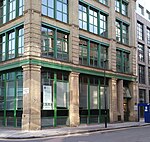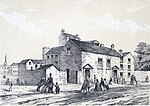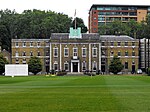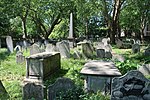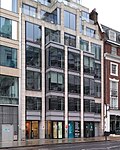Wesley's Chapel

Wesley's Chapel (originally the City Road Chapel) is a Methodist church situated in the St Luke's area in the south of the London Borough of Islington. Opened in 1778, it was built under the direction of John Wesley, the founder of the Methodist movement. The site is a place of worship and visitor attraction, incorporating the Museum of Methodism in its crypt and John Wesley's House next to the chapel. The chapel has been called "The Mother Church of World Methodism".Along with the associated Leysian Mission, Wesley's Chapel is a circuit of the London District of the Methodist Church. The chapel has an average Sunday service attendance of about 440.
Excerpt from the Wikipedia article Wesley's Chapel (License: CC BY-SA 3.0, Authors, Images).Wesley's Chapel
City Road, London Finsbury (London Borough of Islington)
Geographical coordinates (GPS) Address Nearby Places Show on map
Geographical coordinates (GPS)
| Latitude | Longitude |
|---|---|
| N 51.523611111111 ° | E -0.086944444444444 ° |
Address
John Wesley's House
City Road
EC1Y 1AU London, Finsbury (London Borough of Islington)
England, United Kingdom
Open on Google Maps


